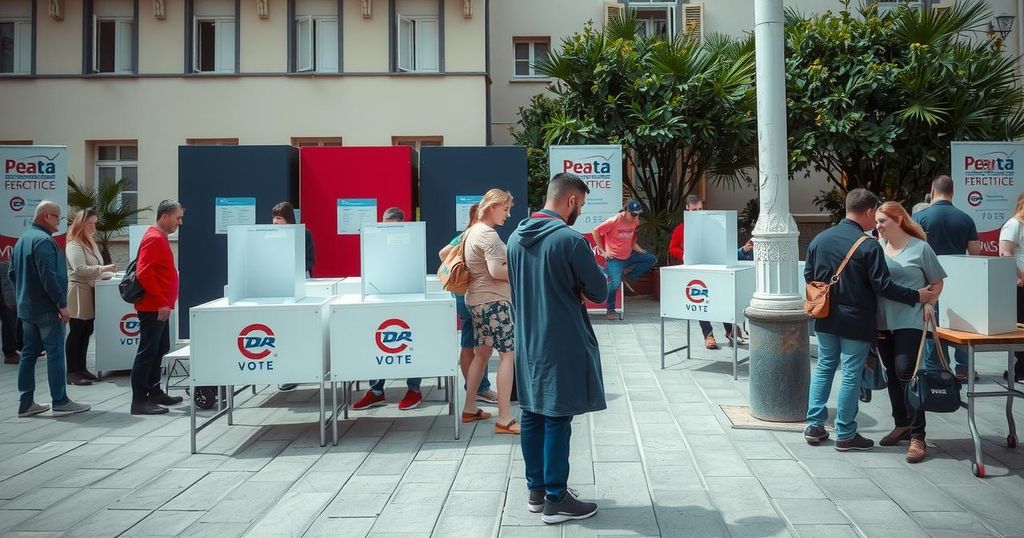Croatia’s Presidential Election: Zoran Milanović Faces Competition in Pivotal Vote

Croatia’s presidential election features incumbent President Zoran Milanović, a critic of Western support for Ukraine, seeking re-election amidst a competitive field. Facing off against Dragan Primorac and others, Milanović’s controversial policies and confrontational style, compared to Donald Trump, mark a notable electoral backdrop. The election’s outcome may significantly influence Croatia’s political alignment with NATO and the EU.
Croatia is preparing for a presidential election where President Zoran Milanović, known for his left-leaning policies and criticism of Western military assistance to Ukraine amidst its conflict with Russia, is seeking re-election. The election, scheduled for Sunday, is unlikely to see Milanović secure an outright majority in the first round, as he faces seven other candidates, including Dragan Primorac from the ruling Croatian Democratic Union. Milanović, a prominent populist figure who served as prime minister prior, is expected to meet Primorac again in a potential second round on January 12 if the initial vote does not yield a clear winner.
The political landscape in Croatia has been marked by a rivalry between Milanović and Prime Minister Andrej Plenković, who has accused the president of being ‘pro-Russian’ and undermining Croatia’s position within the EU and NATO. Milanović’s stance includes opposition to NATO’s support for Ukraine, asserting that Croatia should refrain from engaging in global conflicts despite its membership in these alliances. He notably blocked Croatia’s participation in a NATO training mission for Ukraine, stating, “no Croatian soldier will take part in somebody else’s war.” In contrast, Primorac has emphasized a Western-oriented future for Croatia, asserting, “Croatia’s place is in the West, not the East.”
Although the presidency in Croatia is primarily ceremonial, it carries important political authority including military leadership. This election is particularly significant as it follows a snap parliamentary election in April and the European Parliament elections in June, marking the third vote within a year. Notably trailing in pre-election polls is conservative independent candidate Marija Selak Raspudić, who has centered her campaign around economic issues and the ongoing corruption challenges facing Croatia, including a recent high-profile corruption case within the ruling party’s ranks.
The political situation in Croatia is shaped by tensions surrounding its alignment with Western institutions such as NATO and the European Union. President Zoran Milanović’s critical stance on military support for Ukraine represents a significant departure from broader EU and NATO policy, which typically supports Ukraine in its conflict with Russia. His remarks and decisions, particularly regarding Croatia’s military involvement, have ignited debate about the country’s geopolitical orientation. This election marks a pivotal moment for Croatia’s future leadership and its direction concerning international alliances.
The upcoming presidential election in Croatia underscores the significant dichotomy in political ideologies regarding the nation’s alignment with Western powers. With President Milanović advocating for a more neutral stance amid geopolitical tensions, and his chief rival Primorac promoting a Western orientation, the election results will play a crucial role in defining Croatia’s future within the EU and NATO. As political rivalries intensify, the electorate faces key decisions that will influence the country’s international stance and domestic governance.
Original Source: abcnews.go.com








